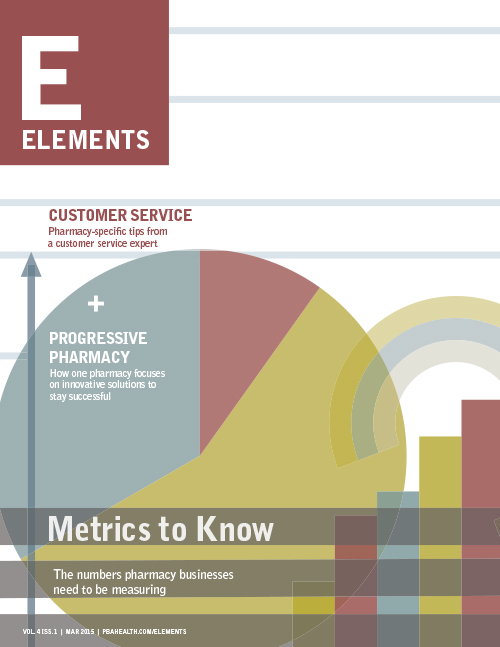Inside: Your pharmacy’s success depends on your pharmacy management. Learn how to manage your pharmacy more effectively.
Running an independent pharmacy requires many roles. Management is only one of your responsibilities, even though it’s a full-time job on its own.
The quality of your pharmacy management significantly affects the success of your pharmacy. Poor managers run good pharmacies. Successful managers run great pharmacies.
When you were in pharmacy school, you probably never trained to become a business manager. With all the other responsibilities and distractions, and without proper training, it can be challenging to manage an effective, profitable pharmacy business.
But effective management is learnable. And if you’re already a successful manager, you can always further hone your skills to help your pharmacy reach its full potential.
Use these 10 tips to make your pharmacy management effective and profitable.
1. Create a structured work environment
Structure is vital to growth.
Consider tomatoes. Left to themselves, tomatoes grow slowly, become stunted, or sometimes wither up altogether or snap completely off the branch. But install a structure like a stake or trellis to support the tomatoes, and they flourish.
Similarly, every pharmacy needs a structured work environment to produce effective employees and workflow.
Start by creating the following:
- Permanent policies
- Clear goals—daily and yearly
- Efficient workflow system
- Consistent work schedule
- Clear hierarchy
2. Determine employees’ strengths and weaknesses
The better you understand your employees, the better you’ll be able to leverage their skills.
The most effective workplaces maximize their employees’ strengths while minimizing their weaknesses. That way you get the best from everyone.
“A strengths-based culture is one in which employees learn their roles more quickly, produce more and significantly better work, stay with their company longer, and are more engaged,” Jim Harter, Ph.D., Chief Scientist of Workplace Management and Well-Being for Gallup’s workplace management practice, wrote in an article for the Harvard Business Review.
But that also means not every employee performs the same duties. Instead, tailor each assignment or role to each employee as much as you can.
For example, if one of your employees shows extraordinary organizational skills, assign her to manage your inventory. If one of your employees can churn out excellent work with speed, assign him to fill the prescriptions.
The best businesses get the best out of their employees. Get to know them to get the most out of them.
3. Show your appreciation
Showing appreciation isn’t just a nice gesture. It’s also a smart management decision.
In one survey, 40 percent of employed Americans said they’d put more energy into their work if they were recognized more often. In another survey, 50 percent of workers said they’d be enticed to stay with a company if they received more recognition.
And the sad news is that 82 percent of employees don’t feel that their supervisors recognize them enough for their contributions.
Implement regular practices of appreciation, such as:
- Recognizing employees’ work on social media
- Starting an employee-of-the-month award
- Simply saying “thank you” or “nice work” daily
- Calling out specific good work whenever you see it
4. Promote teamwork
Your pharmacy staff is a team. No matter how well your employees work individually, they must also work well collectively—or else your operations will sputter.
Make time to train everyone in their roles within the entire pharmacy workflow. Then, practice it with them. When your system becomes second nature to your employees, your workflow will whirr like a finely tuned engine. Your team will make fewer errors and boost productivity.
Also encourage teamwork in your pharmacy by regularly organizing staff meetings that promote social cohesion and team building.
5. Determine your goals
How do you measure success at your pharmacy?
You can only call your pharmacy management “effective” if you know what you’re striving to achieve.
Make time to set goals for your pharmacy. From there, develop metrics to track how you’re doing.
Once you’re done setting goals for your pharmacy, set goals for your employees—collectively and individually.
Employees can become easily frustrated and discouraged when your expectations aren’t made clear. They become especially frustrated when their performance is evaluated by metrics that don’t make sense to them or aren’t articulated.
6. Be a leader, not just a boss
Great pharmacy management requires more than exercising authority.
Every manager is a boss. But not every manager is a leader.
Bosses make assignments and assign punishments.
Leaders motivate, encourage, and inspire the best in their employees. They pave the path through example. They cast a clear vision of the future.
Under leaders, organizations thrive. Employees are happier and more productive. And work is more effective and efficient.
Cultivate qualities of leadership to make your pharmacy management truly effective.
7. Communicate effectively
It’s no secret that communication is crucial to management.
But when you’re bogged down in daily tasks or caught up in c-suite strategies, it’s easy to let communication fall by the wayside.
Miscommunication can lead to errors, office disputes, or confusion. And good communication improves productivity, efficiency, and cooperation.
What’s more, employees work better when their managers simply talk to them. According to a Gallup report, daily communication significantly increases employee engagement. And personal discussions matter as well as work-related discussions.
Here are some ways to make sure you consistently communicate with your employees:
- Hold regular catch-up meetings
- Set apart 10 minutes per day to talk casually with an employee
- Take your team out to lunch once per month
- Have your team gather for five minutes every morning for announcements
8. Delegate more
Bad managers don’t know when to let go.
Micromanagement stifles your business and your employees. And it will burn you out.
Learn to delegate as much as you can to your trusted staff members.
9. Train up new managers
Most small businesses fail to spend the time needed to train employees to become managers.
Sometimes, that failure is a result of a manager hoarding control. Other times, it’s because of a misconception that good employees will automatically make great managers. (Research shows that good employees don’t necessarily make good managers.)
It’s on you to take your good employees and turn them into great managers. Start early so that you can delegate more tasks and so they’ll be ready the moment their number is called.
10. Know when to take a break
Managing a pharmacy takes all of your energy. And many managers fall into the trap of trying to do everything no matter the stress it causes.
In fact, for many managers, stress is considered normal. Working straight through the day is so common in pharmacies that states have created laws requiring pharmacists to take breaks.
That habit is dangerous. Over time, stress will build up and burn you out. (And result in medication errors.) And stress turns you into a worse business manager.
If you’re too busy to get away during the day, something in your operations needs to change.
Take time out throughout the day to break from your work. Set regular times or else you’ll get sucked into the never-ending task list and find it difficult to break away.
 These Are the Most Important Pharmacy Metrics to Measure
These Are the Most Important Pharmacy Metrics to Measure
This white paper includes 30+ formulas to calculate the most important metrics for independent pharmacies. You’ll learn to think like a retailer, discover the methods to track and measure meaningful pharmacy metrics, and learn ways to use pharmacy metrics to get insight into business performance.
A Member-Owned Company Serving Independent Pharmacies
PBA Health is dedicated to helping independent pharmacies reach their full potential on the buy-side of their business. Founded and run by pharmacists, PBA Health serves independent pharmacies with group purchasing services, wholesaler contract negotiations, proprietary purchasing tools, and more.
An HDA member, PBA Health operates its own NABP-accredited warehouse with more than 6,000 SKUs, including brands, generics, narcotics CII-CV, cold-storage products, and over-the-counter (OTC) products — offering the lowest prices in the secondary market.


 These Are the Most Important Pharmacy Metrics to Measure
These Are the Most Important Pharmacy Metrics to Measure









